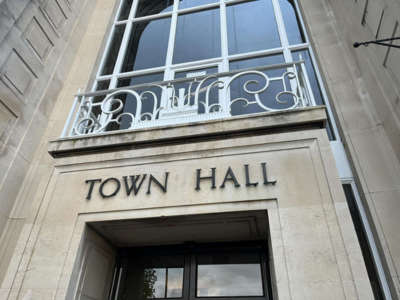
A consultation has begun on whether Tunbridge Wells should have its own Town Council.
There's concern that local voices will struggle to be heard when the Tunbridge Wells Borough Council is abolished in three years time and replaced by a more distant unitary authority - likely to be based in Maidstone.
The idea of a Tunbridge Wells Town Council was supported by Mark Ellis - the local Liberal Democrat who's a Borough and Kent County Councillor. He encouraged residents to engage in the consultation.
The local government reorganisation being implemented by the Labour government involves merging two existing tiers of council administration.
Tunbridge Wells residents currently have some services supplied by the Borough Council and some by Kent County Council.
People living in areas like Southborough and Rusthall already have a third tier - a Town or Parish Council - which would be unaffected by the changes. But Tunbridge Wells never created a Town Council after the Tunbridge Wells Municipal Borough was abolished in 1974.
Here are the six wards that have no Parish Council level of government.
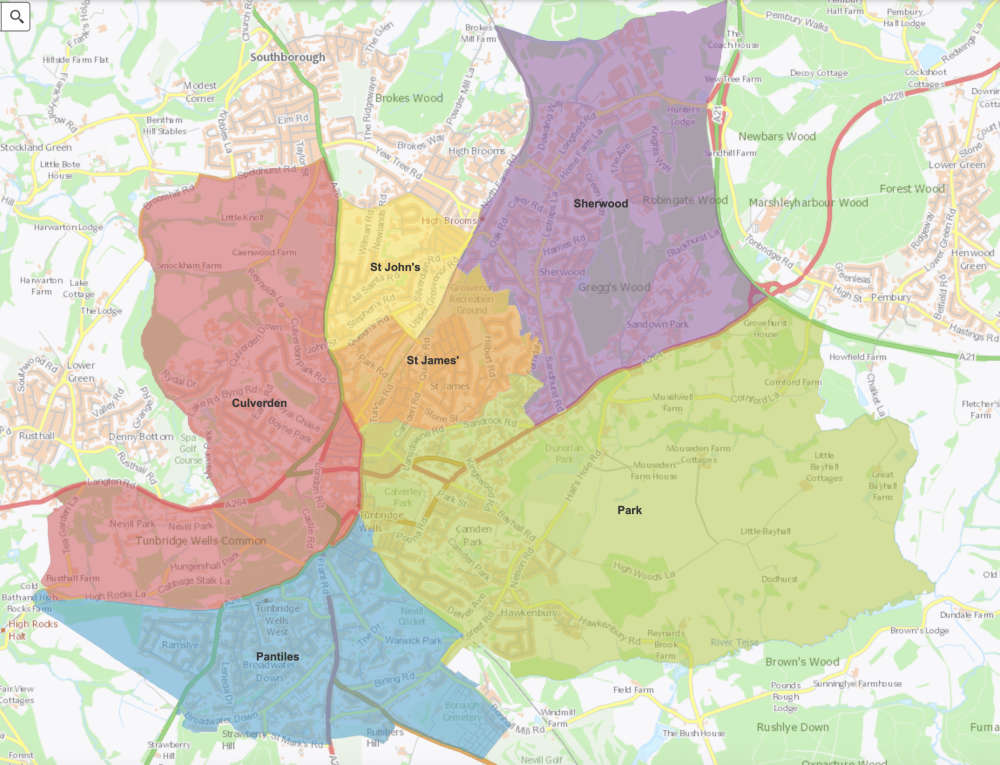
The same situation exists in the town of Tonbridge, which also never created a Town Council, when the much larger Borough Council for Tonbridge and Malling was set up in 1974. Tonbridge is also consulting on setting up a Town Council. This was an article with the details from February:
https://www.westkentradio.co.uk/news/west-kent-news/petition-hits-target/
The Tonbridge consultation has a deadline for responses of 5pm on Monday 14 July. You can take part via this link:
https://www.tmbc.gov.uk/voting-elections/tonbridge-town-council-review
Tunbridge Wells Borough Council has details on its website about how to respond to its consultation, which is known as a Community Governance Review (CGR). See:
https://tunbridgewells.gov.uk/council/voting-and-elections/cgr/about
It implies more than one new council could be set up by splitting the unparished areas of Tunbridge Wells Town into more areas reflecting local communities.
The Council says "This CGR will consider if a new parish and/or town council(s) should be created to represent the six unparished areas".
There are two phases of public consultation:
- Phase one (open now) - Monday 2 June until Sunday 3 August
- Phase two - Monday 22 September until Sunday 23 November
In a statement to West Kent Radio, local Liberal Democrat Councillor Mark Ellis (pictured below) said: "As a borough councillor, I support establishing a town council for unparished areas, especially as we move toward a new West Kent unitary authority when Kent County Council and Tunbridge Wells Borough Council end in 2028."

Cllr Ellis continued: "With the current two-tier system disappearing, having a town council will be more important than ever to ensure local voices aren't lost within a much larger unitary authority structure. I urge every resident in these six wards to engage with the consultation process running through to November - this is your chance to establish the local governance structures that will represent you for years to come".
The Borough Council also has a Frequently Asked Questions section.
https://tunbridgewells.gov.uk/council/voting-and-elections/cgr/faqs
This explains that there is no central government limit on what Parish Councils can charge residents - Borough and County Council tax levels are currently capped.
Residents in unparished areas of Tunbridge Wells town currently pay "special expenses" to the Borough for very local services like parks upkeep. This is currently £134.79 a year for Band D homes.
By contrast Band D residents of Southborough, who already have a Town Council running services like local parks and cemeteries, pay more in total with a charge of £6.47 from the Borough plus £161.59 in their Southborough Town Council precept.
According to the Borough Council, some of the benefits of having a parish or town council include:
- Community representation - they give residents a stronger voice in local affairs, ensuring their needs and preferences are directly addressed.
- Focused development - they can drive community projects and initiatives tailored to local needs, such as environmental conservation or youth programs.
- Economic advantages - they can attract funding and grants unavailable to larger councils. They can also promote local businesses through initiatives and events, boosting the local economy.
- Improved quality of life - they can work on projects that enhance the quality of life, such as creating green spaces, supporting local sports teams, and organising cultural events.
- Greater accountability - they are closer to their residents, leading to more accountability and transparency in decision-making.
In its latest newsletter the Tunbridge Wells Town Forum spoke positively about the experience of Sevenoaks Town Council, which has existed since 1974.
The newsletter says: "Members of the Town Forum were invited to visit Sevenoaks Town Council in April. While one might typically expect a town council to manage allotments, cemeteries, and local parks, Sevenoaks has gone far beyond that.
"They have developed two new community centres and a business hub, restored a derelict building using Heritage Lottery funding, and saved the Stag Theatre, which now includes two cinemas, a small performance space, and a youth hub.
"The council also runs two cafés, maintains the iconic Vine cricket pitch, manages rugby pitches, and hosts events at the town bandstand. The councillors and officers at Sevenoaks were truly inspiring in demonstrating what can be achieved at the town council level."
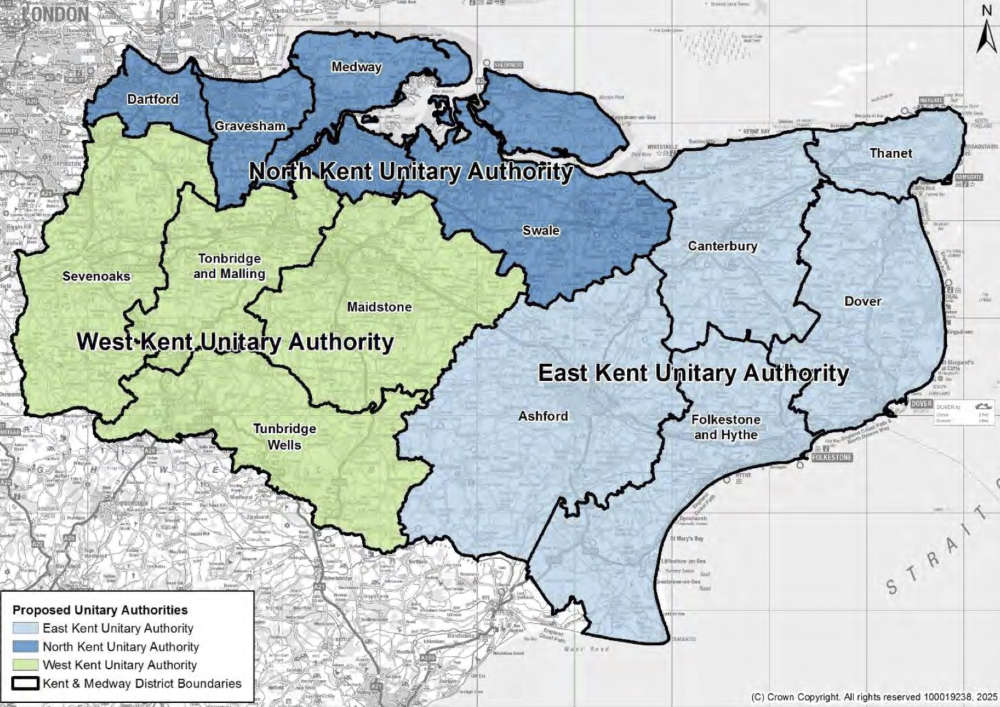 No delay to Council Shake Up
No delay to Council Shake Up
 Cash in Tonbridge
Cash in Tonbridge
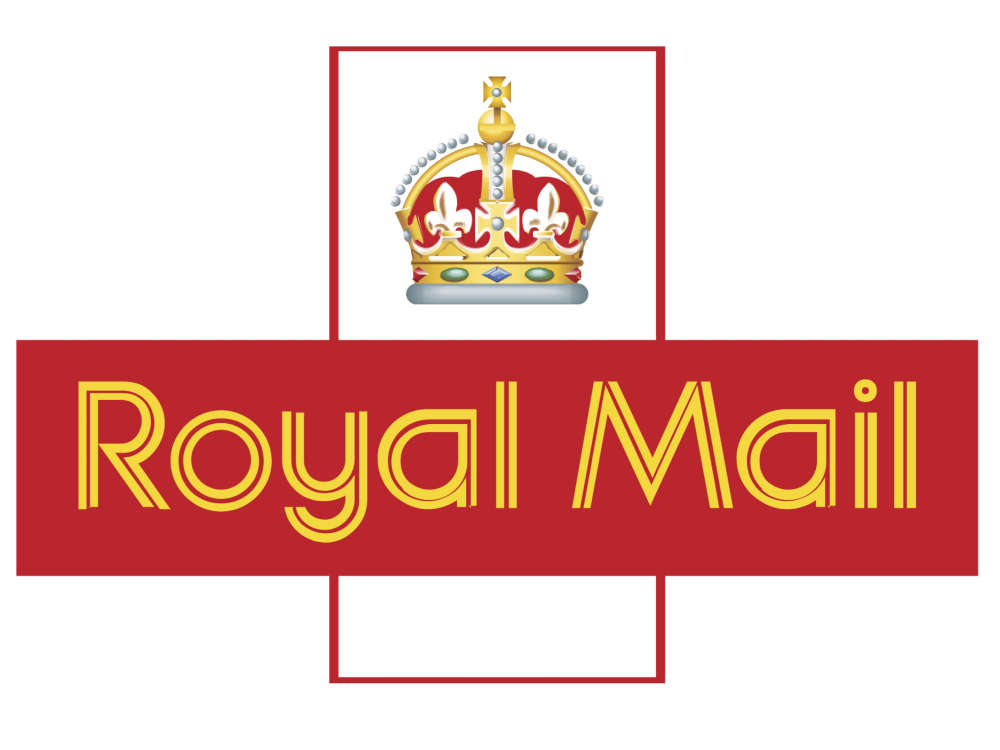 Still in the Post
Still in the Post
 TWBC Centre's Milestone
TWBC Centre's Milestone
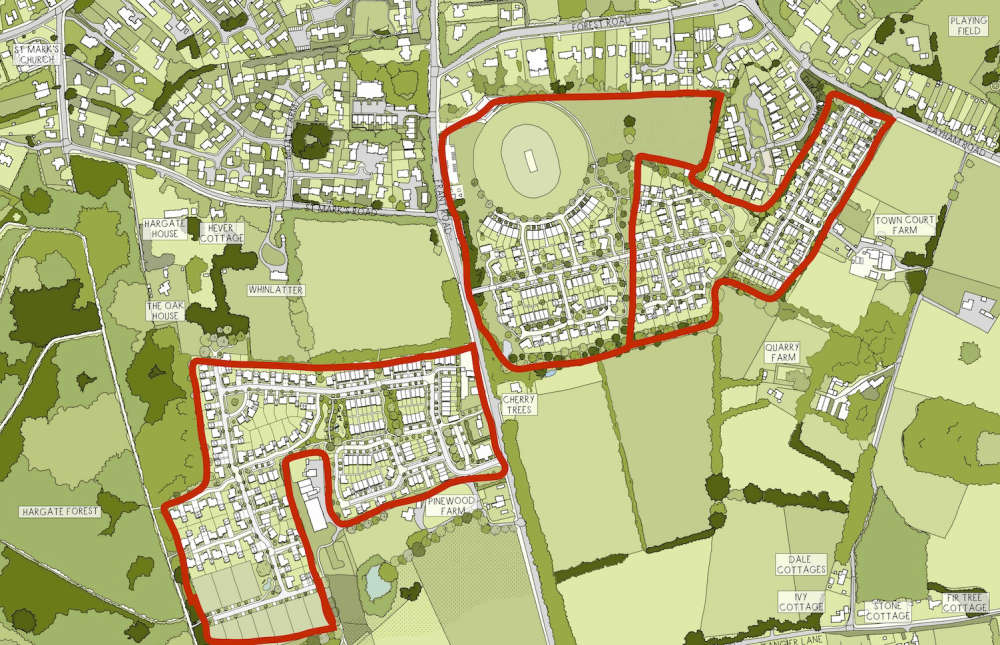 Petition Hits 3,000
Petition Hits 3,000
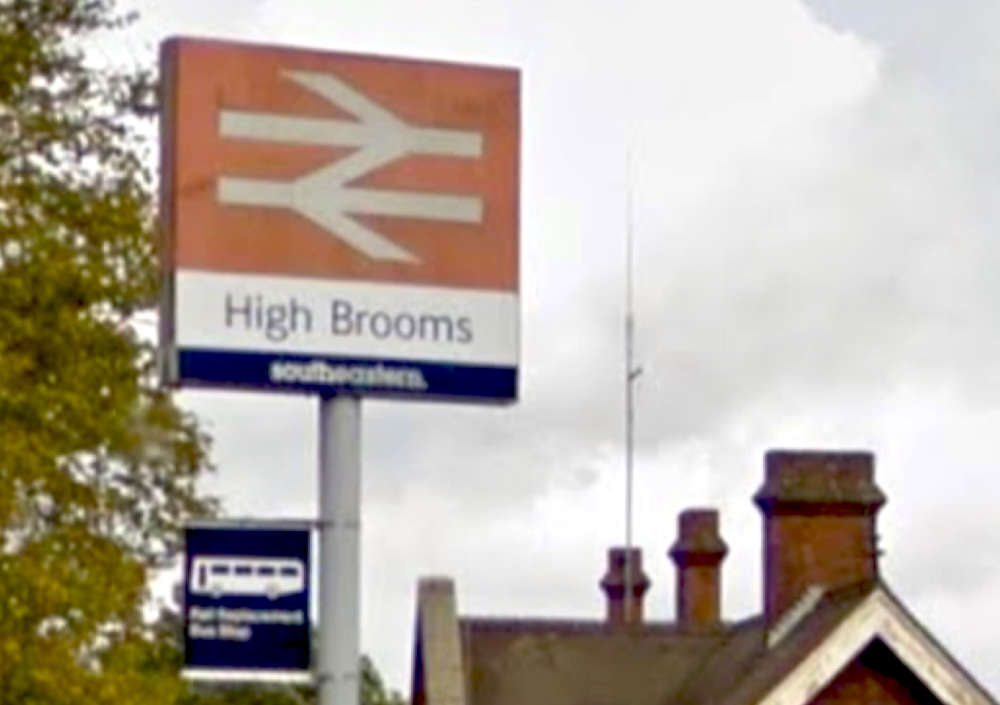 Installing Lifts
Installing Lifts
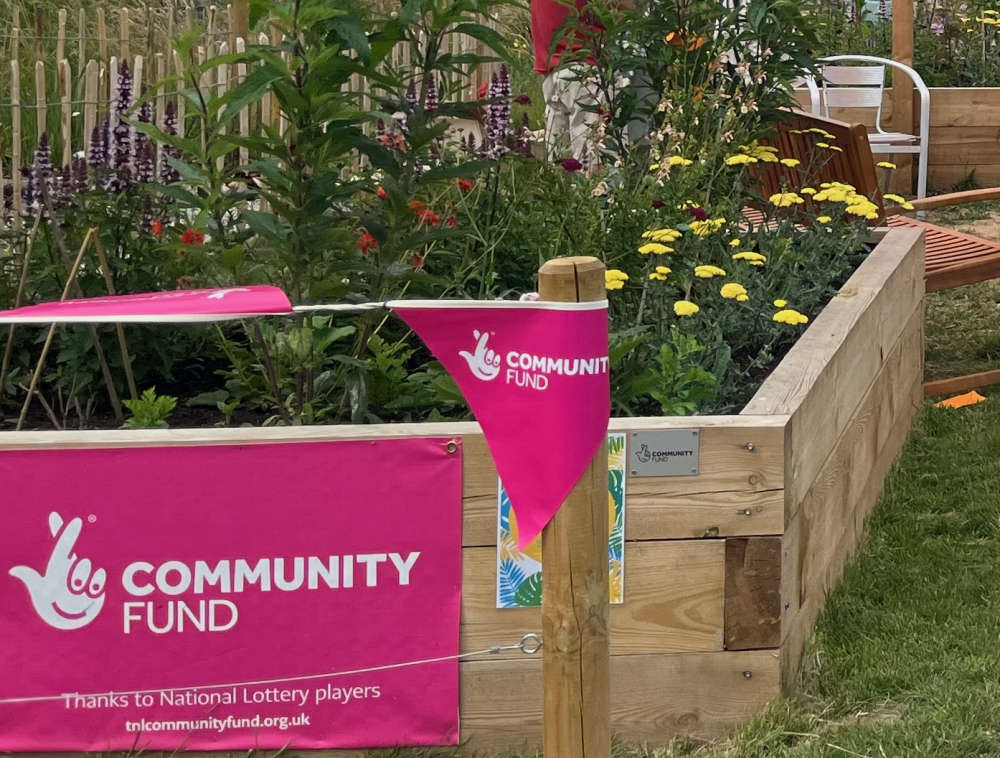 Supported Allotment
Supported Allotment
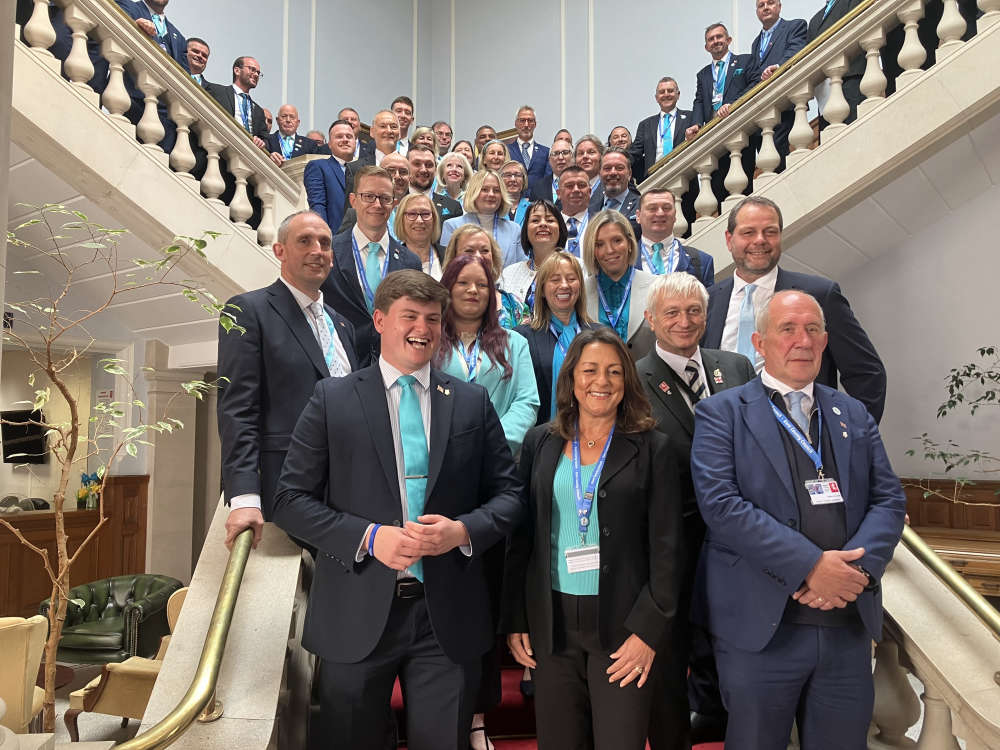 Reform In Charge
Reform In Charge





Comments
Add a comment